Historically, the secular self-definition of Jewishness is the result of anti-Semitism: the gentiles refused to allow them to be part of their society, and kind of gave them no choice – they weren’t accepted as non-Jews, so they were forced to call themselves Jews even though they were secular. Jean Paul Sartre was right when he said that it is not the existence of Jews that results in anti-Semitism but it is anti-Semitism that causes the existence of Jews. What I mean when I say he was right is that this is the only viable and honest definition of Jewishness from a secular perspective. Many people do not know this but Sartre’s definition of Jewishness – i.e. whoever the anti-Semites persecute – was invented by Theodor Herzl, who said it before Sartre. He was asked by the British Royal Commission on Alien Immigration what Jewish Nationalism is, considering that the Jews aren’t a nationality. Herzl answered that a nation is, in his opinion, a historical group of men in “a recognizable cohesion, which is held together by a common enemy” — they then asked him who the enemies of the Jews are? He said “the anti-Semites.” The Zionists have not come up with a more viable definition of Jewishness since. Ben Gurion was once asked what the definition of a Jew is and he said Jews have no definitions. Shlomo Sand writes that he was once asked by a Christian friend why her husband is considered Jewish even though he doesn’t believe in the Jewish religion, but she is not considered Christin because she doesn’t believe in the Christian religion. Sand answered: “Hostility toward them in modern times has given Jews a specific identity as victims of segregation …” That’s the best secular definition of a Jew that exists: whoever is persecuted because he is a Jew.
The seculars will never find a feasible definition of Jewishness because the existence of Jews is an article of religious faith. If you refuse to accept that religious definition, you’re not going to find a viable substitute. Trying to find a political or social definition of Jewishness is like trying a political definition of kosher meat, or a mezuzah. Jewish identity is religious, period. Of course, the anti-Semites who don’t accept the Torah’s narrative have to concoct some definition of Jewishness – but whatever they come up with will not withstand the slightest bit of scrutiny. Trying to figure out what a Jew is without believing in the Torah is like trying to figure out what 1+1 is without believing in the number 2. No matter how hard you try, your answer won’t work.
Is Zionism a Jewish invention? What is the role of the Evangelical Protestantism in shaping the Jewish secular thought?
Rabbi Shapiro: No, Zionism is not Jewish in origin. Centuries before Hess or Herzl were born the Evangelicals already created and pursued Zionist ideology. Prof. Yakov Rabkin (History, University of Montreal) got it right in the Glossary of his book “What is Modern Israel,” where he defined Zionism as “Ideology of protestant Christian origin that propounds the assembly of the Jews in Palestine. At the end of the 19th century, a group of activists of Jewish origin in Central Europe established the Zionist political movement etc.” Christian Zionism originated in the late 1500’s, early 1600’s. The Jews never wanted to return to the Holy Land en masse until the Messiah arrives and peace would reign in the world, and the universe would be ruled by a spirit of G-d. The idea that Jews should return, create a political sovereign state there was invented by the Christians. So many aspects of Zionism that we attribute to Jews were actually invented by the Christians. People attribute the idea oat Jews should speak Hebrew to the ultra-Zionist, secular Jew, Ben-Yehuda. It was the idea of the Christian Zionist Benedetto Musolino, who preceded Ben Yehuda. The slogan “a land without a people for a people without a land,” which Abu Mazen recently quoted in the name of Theodor Herzl – that was a mistake – Herzl didn’t say it – it was really said by Israel Zangwill and common among Jewish Zionists at the end of the nineteenth and beginning of the twentieth century – was already used by Christian Zionists such as Lord Shaftesbury and Alexander Keith in the 1840’s before any Zionist ever thought of it. It was a Christian Zionist, Rev. William Hechler, who approached Herzl saying he was the fulfilment of his own prophetic interpretation of the scriptures. Hecler used his enormous political connections to introduce Herzl to the most powerful political leaders of Germany and England to lobby for Zionism, including the Grand Duke of Baden, and the Kaiser Wilhelm of Germany. Incredibly, Jewish Zionists have adopted Christian interpretation of the scriptures, abandoning Jewish ones, to garner support from Christian Evangelicals, Zionism’s strongest supporters. Benjamin Netanyahu, the Prime Minister of the so-called Jewish state, and self-proclaimed leader of world Jewry spoke at the site of the Auschwitz concentration camp and publicly repeated an interpretation of Ezekiel 37 – the prophecy of the “Dry Bones,” applying it to the state of Israel, an interpretation found in no Jewish source – indeed, it contradicts Judaic doctrine – and was invented by the Rev.Reverend Charles Haddon Spurgeon in 1864! And repeated by Evangelicals such as John Hagee. The ideology of modern Zionism is much more Christian Evangelical than it is traditional Jewish. In fact, a Pew survey done about
5 years ago concluded that while most Jews do not believe God gave Israel to the Jews, 80% of white evangelical Protestants do.
Why Jewish Zionists have embraced Zionism? Could it be a self-hate driven response to the anti-Semitism in Europe, which saw as rational to embrace the ‘enlightened and intelligent’ atheism in order to create a secular, gentile-alike, Jew?
The original Zionists were Jews who were influenced by, impressed with, and envied the lifestyle of the gentiles over that of the Jews. Jews always believed their collective mission was to be, as the Bible says, “a nation of priests and a holy people,” dedicated to studying the Torah, developing their morals, and giving up any possible role they could play in the history of nations. There was no Jewish art, science, or sports. Jews had no military heroes, no sports heroes, no national political heroes. Our heroes were the righteous and scholarly. The Zionists wanted to be secular. Many even absorbed the anti-Semitic hatred of the Jews that was so prevalent in those days. However, they attributed anti-Semitism to the priestly lifestyle of the religious Jews, looking at them as ugly, immoral, and debased. They figured if the Jews could become normal – meaning to change their lifestyle, and become indistinguishable from non-Jews, anti-Semitism would end. Herzl promised, in the last page of his book Der Judenstaat, that if Zionism takes off, anti-Semitism would immediately cease to exist. Stupid thinking, to be sure, but that’s what the Zionists believed. More than anything else, they hated the Jewish lifestyle and they wanted to become, in the worlds of Jabotinsky, the “diametrical opposite” of a Jew – everything that is a Jew, they wanted to be its polar opposite. That’s what Jabotinsky said. That’s how he defined a Zionist – as the exact opposite of a Jew. Well, they tried, they secularized themselves and acted very unJewish, but anti-Semitism didn’t end. They were rudely awakened to their Jewishness by anti-Semitic violence, especially the string of pogroms that began in Russia in 1881. Now they were stuck between a rock and a hard place – they refused to be Jews, and the gentiles refused to let them be gentiles. So Zionism was Plan B – basically, they figured if they can’t join the gentile nations, they’ll make a nation of their own, they’ll turn all the Jews into nationals, turn Jewish identity into a nationality. Anything to shed themselves of the traditional Jewish identity. So they tried to reengineer Jewish identity form religious to national.
Is Zionism a homogenic ideology or rather set of different intellectual ideas, like: Nitzsche’s ‘Übermensch’ philosophy, organic nationalism, Russian workers movements and German romanticism?
Because the Zionists were synthetically creating a new nationality from scratch, as opposed to their society just evolving organically, they could pick and choose any ideas or fads that they wanted. Some chose socialism and land-based philosophies, like Aron Dovid Gordon and his type – this group became the left-wing Zionists; others, like Jabotinsky, chose a large dose of militarism, largely fascist-influenced. They became the Revisionists, which evolved into what today is the Likud. They were creating an entirely new society, pretending they were scions of the “ancient people of the Book” – partly to garner support from the Evangelicals – remember Britain had the mandate, and Britain was largely Puritan, so dovetailing with Evangelical Christianity would serve them well – plus they needed to recruit Jews to populate their future state, so they couldn’t just abandon their claim to Jewishness. Instead, they claimed they are the authentic version of Jewishness. That was what I call the Zionist identity theft against the Jewish people. Also, to be the fulfilment of the Evangelical prophesies they had top present themselves not just as a group of Jews who want to be Zionists, but rather as the Jewish people in toto, “returning to their homeland.”
What is the impact of Zionism on Jewish history?
Well let’s hope Zionism becomes history soon. In the meantime, it’s just like other deviant movements among the Jews, or break-off religions, such as the Seducees, or the Karaites, or the assimilationists. The Zionists are unique among the deviant Jewish movements in many ways, not the least of which is their political success – they have
a country, an army, and professional propagandists of the highest order. Their claim to represent all of world Jewry, too, is unique among the break-off movements, and uniquely dangerous to Jews all over the world.
Is Hebrew an official Jewish language?
First, we should not confuse modern Hebrew with the language of the Bible, which we call Lashon Hakodesh (The Holy Language). Today’s modern Hebrew has appropriated much of the Holy Language, but it is not the same language – not in its grammar, pronunciation, and especially not in its vocabulary. In fact, the architects of modern Hebrew deliberately inserted into their language phrases and words that mock the religion of Judaism. For example, we have a word in Rabbinic Hebrew Bitachon, which means trust in G-d. In Zionist Hebrew, it means Homeland Security. The implication is obvious: what we used to think G-d will do, today our army will. Or the phrase keren kayemes, which in Rabbinic literature means the accumulation of good deeds one acquires in this world for which he is rewarded in the afterlife. In Zionist Hebrew it means the JNF, a fund that goes to promote Zionist causes. So modern Hebrew is actually a mockery of Biblical and rabbinic Hebrew, just as Zionism is a mockery of traditional Judaism.
That said, although Jews spoke Hebrew (Loshon Hakodesh) in Biblical times, we eventually abandoned it, for various reasons. But most importantly to your question, although the Jews did speak Hebrew once upon a time, it was never the national language of the Jewish people. Meaning, language is normally one of the primary unifying factors of a nationality. Some say a common language is even more important than a common land to create a people. The Jewish people are unified only by dint of their religion. Hebrew was a language we happened to speak, for religious reasons (after all, it is a holy language) but not for nationalistic ones. Jews are not united because of Hebrew. The common language did not contribute to our peoplehood the way it does to others. The Zionists created modern Hebrew to change that. In their efforts to change Jewish identity form religious to national, they needed to provide for the Jews national symptoms like a language, and a land. Especially before 1948, when there was no Israel, Hebrew was vital for the Zionist cause, because it was the only national commonality available to Jews who wanted to be nationals.
What is Yiddish? What is Zionists’ approach towards Yiddish?
Yiddish is a dialect of German that Ashkenazi Jews developed within their society. (Oriental Jews – Sephardim – did not speak Yiddish; some of them spoke Ladino, a dialect of Spanish). Zionists hated Yiddish, because it represented the old-time traditional Jewishness that the Zionists wanted to eradicate.
Do Zionists believe in God? Are they observant Jews?
Some do and some don’t; some are and some aren’t. Because Zionism has nothing to do with Judaism, but is rather a political movement, it’s like asking if Sudanese believe in G-d. Many early Zionists repudiated belief in G-d, like ben Gurion, who claimed G-d gave the Jews the land, but he didn’t believe in G-d – at least not the G-d of the Bible, anyway. Early Zionists, such as Israel Zangwill, said that Jews could be Christians or Muslims by religion, since Jewishness would be a national, not religious identity. Today that sounds weird, but logically if a Zionist can be an atheist – and most of the founding fathers of Zionism were – and still consider himself Jewish, why can’t someone believe in the Christin religion and consider himself Jewish? That is one of the very many logical inconsistencies in Zionist ideology. As far as the observant Jews being Zionists, Zionism itself is like idolatry according to the Torah, and just as in Biblical times there were otherwise observant Jews who worshipped idols (such as the Baal worshippers), so too nowadays we have otherwise observant Jews who believe in Zionism. It is certainly a contradiction, just as Judaism and idol worship was in the days of the prophets, but human beings have an uncanny capacity to compartmentalize contradictions in their own beliefs, so it’s not shocking.
Bearing in mind that many Jews around the World are being blamed for Israel’s internal and external actions, can we assume that ideology of Zionism indirectly contributes to the rise of anti-Semitic sentiment among gentiles and thus pose an existential threat to the Jews living outside of Israel?
Yes, absolutely. Well, I’m not sure the threat rises to the level of existential, but yes, Israel – in particular its claim to be the Jewish state – endangers Jews all over the world. Tel Aviv University’s’ Kantor Center has the largest database of anti-Semitic data in the world – and they’re scientists, not activists with an agenda like the ADL. And every report that they release says the same story: because people conflate Israel with Jews, when people are upset with Israel, Jews all over the world get hurt.
Do you perceive this as an unintended outcome of Zionism or rather well-calculated policy aimed at forcing the Jewish diaspora to move to Israel and admit its statues of the Vatican for the Jewish people?
Part of it is calculated and part they don’t cause but they are certainly happy about. When Netanyahu goes to France or Denmark after anti-Semitic attacks against Jews and tells them the solution is the Jews should all come to Israel, he knows, unless he is a total idiot, that he is riling up anti-Semitism, casting the Jews as indigestible everywhere, and the Jewish communities of the countries he says this about – in the above cases, France and Denmark – invariably condemn Netanyahu’s remarks. But Zionists have been doing this for a century – trying to make the world uninhabitable for Jews in order to herd them into Israel. What about the Lavon affair? And their blowing up Jewish cafes and the Masouda Shem Tov synagogue in Iraq in order to herd Jews into Israel? And for what? Eighty times more Israelis were killed in Israel by suicide bombers and random acts of violence in the past 20 years than all Jews killed in Europe by terrorists in the same time period. Israel is like the most dangerous place where Jews live around the world. And I’m not even talking about the territories.
What is Israel’s approach towards the Orthodox Jews? How they are being treated by the Israeli regime?
Uch. Don’t ask. About 10 years ago, the Jreusalem Post published the results of a Gersher survey: The Chareidim are believed to be the most hated group in Israel. 37% of Israelis voted for them as the most hated group; in second place came the Russian immigrants with 15% and a close third, gathering13%, were the settlers. In my view, the reason is simple: Remember: The Zionists fought, died, and killed in order to “rehabilitate” the Jewish people, to transform them form ugly, sickly, decrepit Ultra-Orthodox Jews into proud, strong, bronzed, Hebrew Nationals. The early Zionists thought for sure that in a decade or so there would be no Ultra-Orthodox Jews left. And the state of Israel was supposed to be the agent of that social change. But now, a few generations after they created their state, they see the Ultra-Orthodox community flourishing at a remarkably greater rate than the secular community, and they have no desire to turn themselves into Zionists. In fact, they look at the Zionists as destroyers of Jewishness, not its saviours. The message the existence of the Ultra-Orthodox flourishing to the ZIonsits is: What you strove for, what you sacrificed for, what you killed and died for, was for nothing. We don’t want to be like you. You should have left us alone, you didn’t accomplish anything – you ruined a lot. Your lives, your mission, your whole life philosophy is a sham, and your sacrifices were for nothing. The Zionists can’t take that. If the Chareidim would prefer to be Chareidim than Zionists, and they in fact look down on Zionism and detest what it tried to do to them and their families, it infuriates them.
You are a U.S. citizen and a Jewish person, so what was your reaction to President Donal Trump’s decision to move the U.S. Embassy from Tel Aviv to Jerusalem? Was it the right decision?
Mr. Trump is my president and it is his decision. That said, his statement that he is doing so because Jerusalem is the “eternal capital of the Jewish people” puts his decision beyond the realm of politics and into the realm of Judaic studies. And he is incorrect about that. Jerusalem is a holy city – not a political capital city, to the Jewish people. Two reasons: One, practitioners of a religion don’t have capitals – countries do. And the Jewish people are not a country. When King David made Jerusalem his capital, it wasn’t the capital of the Jews – it was the capital of David’s citizens. Non-Jews living in David’s country would have Jerusalem as their capital as well as the Jews; and a Jew living outside of David’s country would not have Jerusalem as their capital. Jews as Jews never had a capital. Second, even if Jerusalem would be the capital of the Jews, that does not mean that therefore it should be the capital of Israel. Israel is not the Jews.
What is Judaism? What is its relevance in the increasingly secular modern times?
Judaism is a religion that was given by G-d on Mt. Sinai and available to anyone who wants to be part of it. It represents the will of G-d. Just as G-d doesn’t change, neither does His will. Therefore, it makes no difference if the “times” are secular, idolatrous, barbaric, or whatever. Judaism is still as relevant now as it was when G-d gave it on Mt. Sinai. After all, G-d is just as relevant, and so His will is, as well.
Can Judaism co-exist with Islam and Christianity, or these three Abrahamic faiths (and their followers) are doomed to be antagonistic towards each other?
Judaism teaches to be at peace with everyone in the world. Even if we need to go out of our way to do so. Not long ago – and by that I mean before the advent of Zionism – Jews in the Holy Land got along very well with their Arab neighbours. When the Jewish women used to go to synagogue on Yom Kippur, they had Arab girls baby-sitting their children. The Zionists don’t represent Judaism. They represent Zionism. Netanyahu said publicly that he will – quote – “live by the sword” forever. He probably doesn’t know it, but the phrase living by the sword is Biblical, and it was the fate of Esav, the arch-enemy and the antithesis of Jacob, father of all Jews. Jews eschew the sword. Even when necessary to use. Judaism enjoins Jews to be at peace with their neighbours, loyal to their countries of residence, and to love peace and harmony.
Should the Palestinian question be of religious Jews’ concern? Can a God-fearing Jew turn a blind eye from this ongoing conflict in which Jewish people are involved?
The Palestinian question is no more or less the concern of religious Jews – I assume you are asking me about Jews outside of Israel – than any other human rights issues anywhere in the world. Remember: Israel has as much to do with me as a Jew as Bulgaria does. And therefore, for me as a Jew to be more involved in the Palestinian issue than other equally serious issues in other countries would be puzzling. You could have asked me about whether religious Jews can be concerned about many other issues, but you chose to ask me about Palestinians. That is because you believe as a Jew I should have an opinion about issues that involve Israel specifically. But I am an American, not an Israeli, and not a Zionist. So my answer is the Palestinian issue is as relevant to me as all human rights issues all over the world. Because Palestinians and Israelis are human beings, like all others all over the world. For a Jew to involve himself in the Israeli-Palestinian conflict because he is a Jew, and the issue involves Israel, indicates that he believes his Jewishness somehow demands that he be involved in Israel’s issues more than those of other nations, and that’s Zionism. I am not
a Zionist.
On June 3, 2018 more than 15,000 Jews attended the convention of Torah Jewry Against Zionism, which took place in the Nassau Coliseum. Can you tell us a bit more about the event and its outcome? How many young Jews are eager to learn about True Torah Jews and traditional Judaism? Can traditional Judaism even compete with Zionism in its appeal to young Jewish people?
Most definitely. Especially with younger Jews. It’s the older Jews who are mostly Zionists. The rally in the coliseum was an educational event. Judaism values education above all. The way to win the minds and hearts of young people – and old people – is through education: teaching, reasoning, giving them facts and figures; reasoning and sound judgement. Waving flags, singing songs, and throwing confetti may work in the short term, but our Torah teaches that nothing compares to sitting and working hard to understand. Through education – not emotional propaganda, we will, with the help of the Almighty, help bring the world back to peace and harmony.
Thank you Rabbi for your time!
*Rabbi Yaakov Shapiro is a Rabbi of Bais Medrash of Bayswater and Spokesman for ‘Natruna’ and the “True Torah Jews” group. He is an expert in Jewish history and law on which he is the author of several books. His most recent book is titled The Empty Wagon.
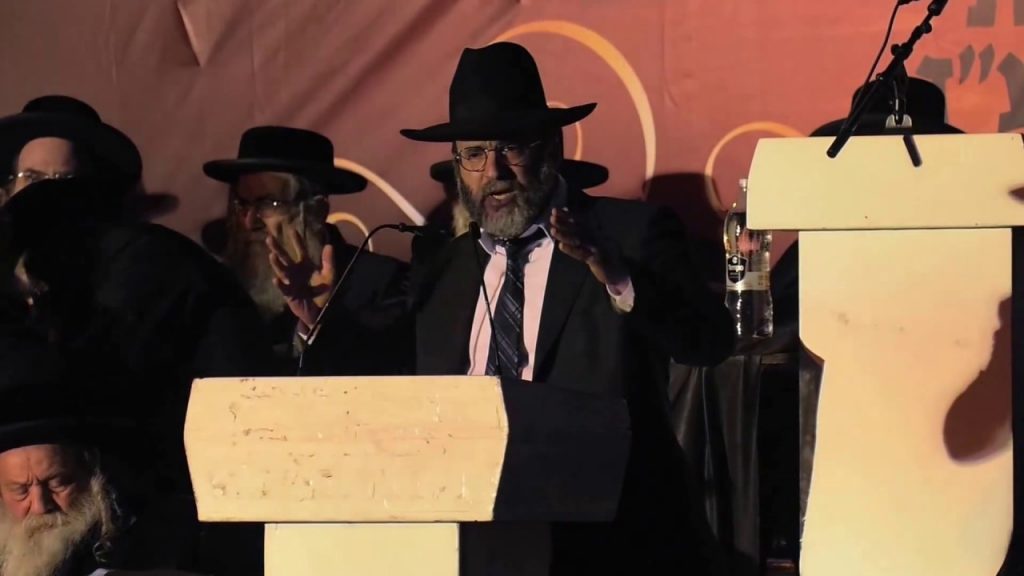
 EN
EN FR
FR

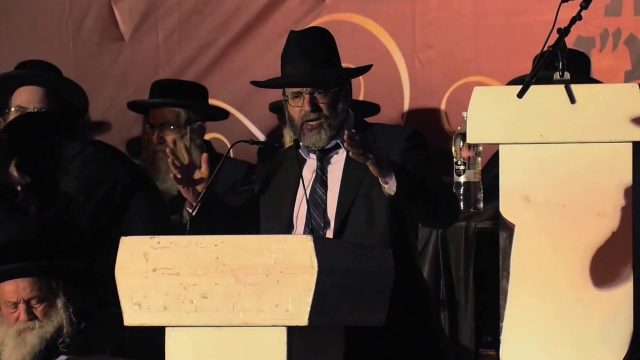


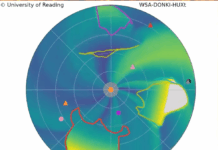

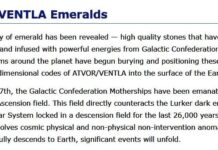


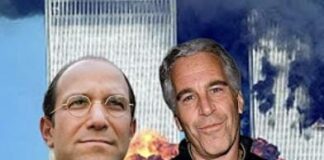


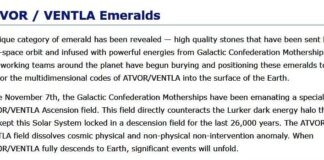
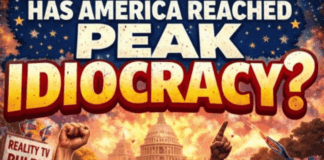













Everyone should read and reflect on Rabbi Shapiro’s words. Quite the most erudite, sane and logical account of the relationship between Judaism and Zionism I have read. Thankyou, sir.
Everyone should read and reflect on Rabbi Shapiro’s words. Quite the most intelligent, cogent and logical account I have read. Thank you, sir.
Ié known this for only a few years now. I heard of Zionism over a decade ago and made the same mistake of lumping it in with the Jewish people of ALL nations. BIG>>>HUGE>> mistake. I then learned about the Khazarian Mafia and found out that teh Zionist Totalitarian Zionists HID behind the Jewish people so as to distract the haters. Gentiles couldn’t really tel the difference or cared that much while they were being slaughtered by the millions by the likes of Stalin and Lenin and the rest of the Bolshevik ”Jews”. (really Zionists). Its coming out now and is clear as mud that this distinct and very separate group DOES exist and that they are not just anti Gentile but anti-human!
Great interview!
Zionism is political deception that is in need of exposing — so good work!